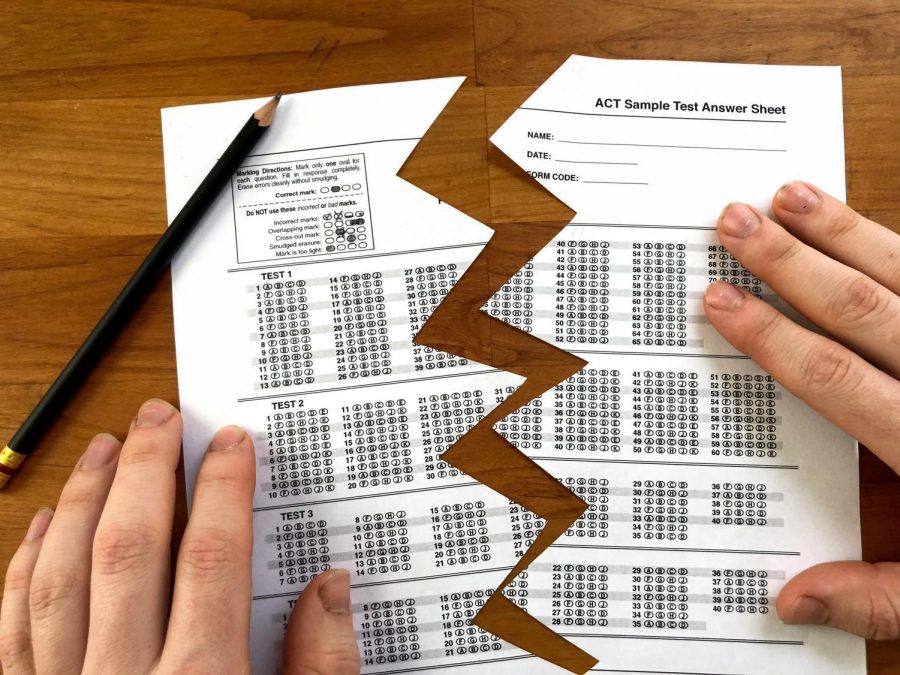Future OSU students may no longer be required to submit ACT or SAT scores
February 10, 2020
Future Oregon State University students may no longer be required to submit ACT or SAT scores as the university is exploring a test-optional approach for enrollment.
Should this policy be implemented, incoming students of the fall 2021 term can exclude standardized testing scores from their college applications.
Dylan Perfect, Associated Students of OSU coordinator of government relations, said via email he took the SAT and applied to OSU from high school, and he said he thinks that it’s difficult to boil down all the skills a student will bring to the university based solely on one test score.
“Making OSU test-optional is a great choice since it is the right and equitable thing to do.” Rachel Josephson, ASOSU president said in an email. “We want to measure students who hope to come here based on what they want to achieve, how driven they are and their creativity, rather than a background that they really cannot control.”
On Jan. 23, 2020, the recommendation was discussed with the Academic Strategies Committee of the OSU Board of Trustees, and on Feb. 13, it will be discussed with the Faculty Senate.
Edward Feser, provost and executive vice president, said the goal for the conversation with the Academic Strategies Committee of the OSU Board of Trustees was to make sure the board understands the reasons for the recommended policy change, rather than to arrive at any kind of vote or decision.
“It was a good discussion, and generally the trustees that were present were receptive to the change,” Feser said in an email. “We recognize that this proposal requires careful consideration by our faculty, via the university’s Faculty Senate. The discussion at the Faculty Senate meeting in mid-February will be very important in that regard.”
In an email, Jon Boeckenstedt, vice provost of Enrollment Management, said it has not been determined how test-optional might affect international students, but he knows that the National Collegiate Athletic Association requires a test score for all athletes to be considered eligible for competition.
Boeckenstedt wrote a report where the details of how this change in policy will affect the university, and he is working with Feser to highlight the benefits of the test-optional approach.
“We are seeking the Faculty Senate’s approval on the concept, and if we get the approval, we will work out the details of the policy and the fine points, such as whether it applies to home-schooled or international students,” Boeckenstedt said in an email.
According to Boeckenstedt, if this policy is adopted, the challenges will be primarily focused on retooling application, admissions and scholarship processes. The university will be focused on communicating the benefits to students and high school counselors of the policy change.
“That’s why we have begun this evaluation and conversation fairly early in the process,” Boeckenstedt said in an email. “To give us ample time to seek broad-based input from faculty, students and other stakeholders, and to be able to develop the approach we will use and the processes to implement such a policy change, if it is approved.”
Other universities like the University of California have already implemented the test-optional approach.
“Typically at other universities across the nation that have made such a change, the first few years of a test-optional policy result in more applications,” Boeckenstedt said via email. “The increases range from very small to considerable. We don’t have any way to project what that number or percentage of change might be for OSU, should this policy be implemented.”
All students, faculty and staff are invited to join the February Faculty Senate meeting where the test-optional approach will be discussed on Feb. 13, 2020 at 3 p.m. in the LaSells Stewart Center, at the Construction and Engineering Hall.
























































































































